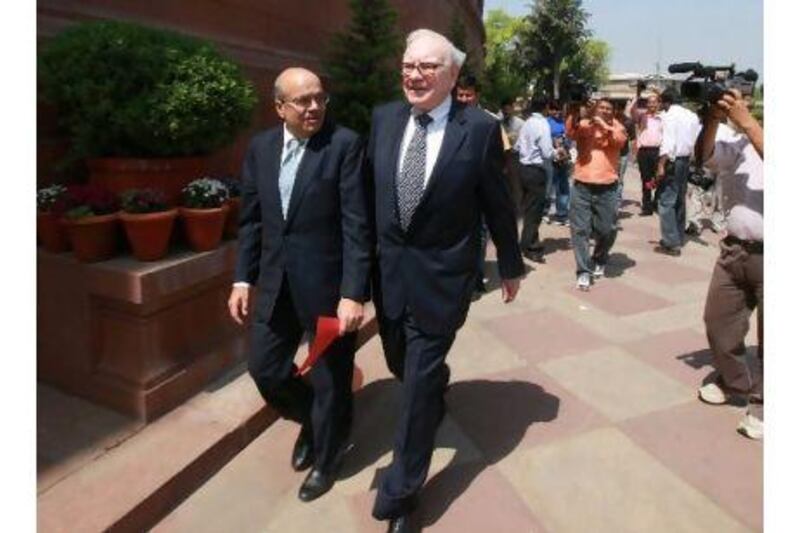The news report Indian state may finally vote out communists (March 28) has captured the true scenario of political events in the state of West Bengal.
The effect of a liberalised economic policy in India did not make a serious impact in the communist stronghold of West Bengal state. More than three decades of communist-led rule in the state has made no substantial contributions to the state's economy. Basic infrastructure facilities are also badly affected due to improper planning and developmental initiatives, since the state's politics have overlooked much of the economic policy schemes introduced in the country some years back.
The state, which has a high literacy rate, has made no significant contributions to the overall growth to the economy despite the 34 years of continuous rule that would have been given the party leadership enough time to review and appraise their electoral promises to the large voting community.
As the state goes to another round of assembly elections next month, the outcome of recent local elections appears to be signaling a reverse trend in the state's politics. It looks like the ordinary people in West Bengal are seeking a change in administration.
It's time for the left-wing leaders to think outside of their traditional perspectives and policies. They need to focus on improving the welfare of the ordinary community. Communist ideology insists that they stay close to the weaker sectors of society, but the majority of the voting population has shifted their beliefs away from this ideology in the recent past.
Ramachandran Nair, Oman
Reasons to deny a visa transfer
I refer to the article A young woman in trouble, and we forgot to do what was right (March 23). I find this article silly. If the original sponsor of the maid did not want to transfer her visa, there could have been valid reasons. I have employed many domestic helpers and most of them were great. But for the few whom I considered unstable or possibly dangerous to another family, I certainly would never agree to transfer the visa. Why would I endanger the lives of other families? So I feel to judge your neighbours without knowing both sides to the story is unfair. It is possibly dangerous to assist someone when you don't know why the visa transfer was denied originally.
Juannie Maldorado, Abu Dhabi
The good work of business tycoons
The article Gates and Buffet in India to persuade the wealthy to donate (March 25) was thought provoking. The visit to the Indian capital of Delhi was a good gesture by the two rich stalwarts to motivate billionaires to donate 50 per cent of their assets to charity. The pair have already done so and expect others to follow in this noble cause.
In India, the IT Wizard of Wipro, Azim Premji, helps deserving students go for higher studies. A country's growth lies in their people becoming knowledgeable.
I hope the visit of the two Americans will be fruitful.
K Ragavan, India
The other side of the success story
The personal finance article by Harvey Jones, Victims of their own success (March 26), is an interesting profile of the emerging markets of Brazil, Russia, India and China. He tries to go deep into the problems of emerging markets, based on the data of the share market and foreign direct investment.
The bright picture of the economic miracle of both China and India has a dark side. China and India surprise the world with their double digit growth rates, a few hundred millionaires and a handful of multi-billionaires. This has created hundreds of emerging social volcanoes that may erupt at any moment, affecting the entire economies.
The rulers of both China and India are starting to realise that actual development means development of the entire people. The rising anger and resentment of youth and women is the basic reason for a rethinking. As a result, a paradigm shift is inevitable in the strategies of human development. Otherwise, these countries will have to pay a very great social price in an age of globalisation and information technology.
Dr Raju M Mathew, Al Ain
Solar power needs the right AC
I refer to to Sun could take the heat off RAK's cooling power costs (March 27). Using solar power for air conditioners is great but only makes sense if you use energy efficient air conditioners.
For example, a five-ton AC uses five kilowatts of power. The average cost of a kilowatt of solar power is between $3000-$5000. So the system would cost you between $15,000-$25,000 which doesn't make sense to power one AC. It would be better to get an energy-efficient AC which has a seal of approval from an energy agency like the Department of Energy.
Mustafa Zaffar, Abu Dhabi





